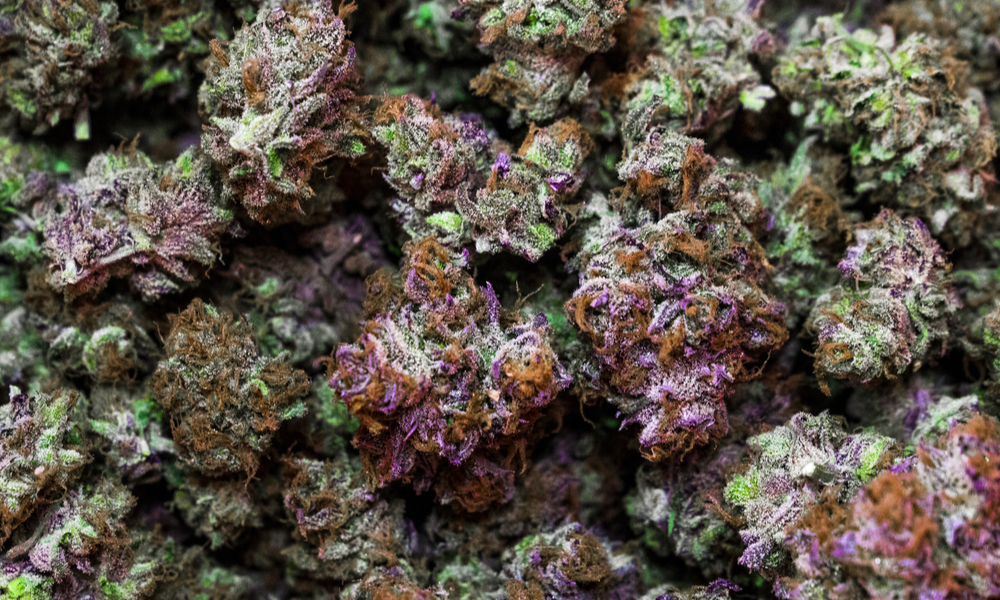Tetrahydrocannabivarin (THCV) is a cannabinoid substance discovered in cannabis and hemp plants. It's chemically similar to tetrahydrocannabinol (THC) but with some key distinctions. Here's everything you require to learn about THCV consisting of the threats, benefits, distinctions, and similarities with other types of THC and more. What Is THCV? THCV is a less typical cannabinoid found in edgarofpa492.shutterfly.com/137 some strains of marijuana, particularly African sativa.
 The Therapeutic Value of THCV • truPhys
The Therapeutic Value of THCV • truPhys
 THCV The Benefits of The Little-Known Cannabinoid
THCV The Benefits of The Little-Known Cannabinoid
 THCV The Benefits of The Little-Known Cannabinoid
THCV The Benefits of The Little-Known Cannabinoid
THCV has a 3-carbon side chain rather than THC's 5-carbon side chain. This distinction is subtle, however it has a visible influence on the effect profile. THCV is rather psychedelic but only about and about. What Does THCV Seem like? THCV has a strong energy-boosting element to it, that makes it especially popular amongst students and professional athletes.
In the United States, THCV guideline is nuanced. THCV is not an Arrange I Drug, however cannabis extracts are making it somewhat unclear what the federal position is on THCV. The 2018 Farm Costs specifies that hemp plants and all derivatives of the plants are legal on a federal level, many business follow this law and still provide THCV to customers by only extracting the compound from hemp plants.
If Additional info THCV is considered a THC analog, it could be controlled in the future by the same guidelines as THC under the Federal Analog Act. This act states that any compound that shares a comparable molecular profile as a known prohibited compound it's included in the very same drug Schedule category.
What Are the Impacts of THCV? Proponents of THCV report that it produces an intense burst of energy and makes them feel blissful without the mental cloudiness triggered by THC. The results are incredibly mild compared to THC. The effects are practically exclusively cognitive yet somehow have very little impact on headspace.
2. THCV & Appetite Some THCV users declare that it curbs their appetite. This is a typical result of other focus-enhancing compounds. It's as though THCV eliminates the distraction of Website link other bodily procedures (like appetite) in order to maintain resources and attention to cognitive jobs instead. How Does THCV Work? Cannabinoids produce biological results in the body by interacting with endocannabinoid receptors.
CB1 receptors lie in the nerve system and interact with neurotransmitters in the brain to produce mind-altering impacts. Interaction with CB1 sites is what offers some cannabinoids like THC their psychoactivity. THCV is a bit challenging to understand because it's mostly a CB1 villain, meaning it has the opposite result as THC.
While researchers are still seeking to comprehend this process, it appears THCV is able to block the impacts of CB1 in low doses and stimulate them in high doses. CB2 receptors are discovered mainly in the immune system. THCV is a partial agonist of CB2, but the impacts of this partial activity aren't well-known, and it relatively has no noticeable impact on THCV users' experience.
As discussed in the previous section, THCV is a Hop over to this website CB1 villain in low doses which is the exact opposite impact of delta 8 and delta 9 THC. This might indicate that THCV combats some of the psychedelic impacts of THC. This effect might discuss why people who use THCV feel so clear-headed specifically compared to the infamous "fogginess" induced by delta 9 THC.